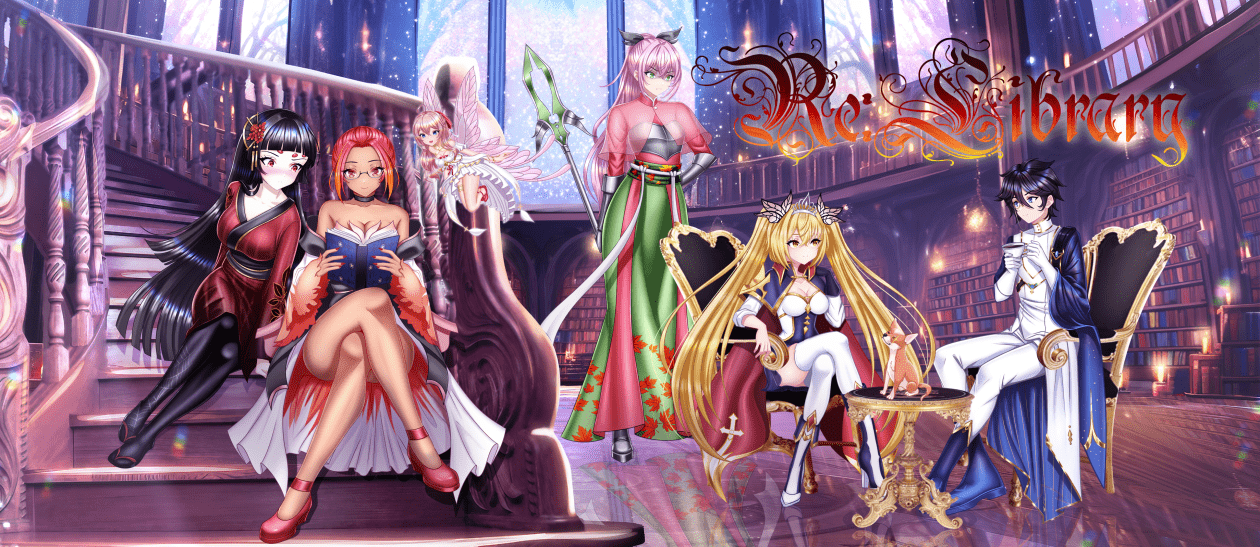have
| Author: Himezaki Shiu | Original Source: Syosetu |
| Translator: PunishedLyly | English Source: Re:Library |
Royal Capital Ausente is an academy city with the largest educational institution in the continent.
It contains two academies, with one being the Ausente First Academy, which serves to educate the nobility of their nation.
Once they reach the age of twelve, the noble heirs and royal children high in the line of succession are obligated to attend there, and even the other children of high nobles are also allowed to enroll.
This is because, while mainly a place of study, it is also a place of meeting and socializing with fellow noble peers.
As power in sorcery is demanded of nobles, those that graduate from this academy are known to be of at least a certain level of strength.
In contrast, the Second Academy accepts a wider variety of students.
Locally residing nobles, prominent merchant families, and talented commoners are able to attend it.
In the case of impoverished commoners, they can take a loan to pay for all the expenses for as long as they maintain their grades up to a certain standard, allowing the nation to, in theory, secure a large pool of talented and capable individuals.
And as the academy also accepts students and experts from other nations, the Second Academy may endorse enrollment at the age of 12, but they do not have any formal age restrictions.
As the high nobility of other nations may be among the academy students, the second academy puts great importance on security both on and off campus.
Due to that, the whole sector containing the academy is as safe and secure as the Central’s towns.
Within the premises of the Second Academy, the students must mingle without regard to their social status. This rule was said to be established due to a low-ranked Ausente noble daughter having disrespected a high-ranked foreign noble in the past.
Even without that case, various troubles may occur due to the students having come from different walks of life, requiring the establishment of this rule.
However, that does not mean that one’s social status is completely irrelevant within the Second Academy.
While there have been multiple occasions of nobles and commoners developing friendships, they still have differing positions after graduation, and there have also been cases where nobles who have suffered excessive disrespect exact retribution post-graduation.
At the Second Academy, excluding general education, one is free to choose whatever topics they want to study.
While general education does include history, it mostly requires only general knowledge.
Other courses cover a wide range of topics, including political science, economics, sorcery studies, knighthood studies, monster studies, sorceric tool studies, and more.
And while the students are grouped by classes, most of them only see each other during general education.
Now, the Kingdom of Ausente’s royal family currently consists of the king, his queen, his concubine, four princes, and two princesses.
While the king did have brothers, they’ve already relinquished their right of succession, either becoming a Duke or marrying into another family.
The crown prince, being the first prince, is already past the age of 20, while the second and third princes are satisfied with their current status and are positive about supporting the first prince. So for as long as a sudden catastrophe doesn’t strike, the next generation is said to be secure.
However, the royal palace was shaken when the concubine got pregnant with the fourth prince.
One with the Job “Future Sight” employed by the kingdom prophesied, “The fourth prince’s talent in sorcery is prominent even on a world-wide scale, and this may split the palace into two.”
Excessive firepower is not necessary to become a king, but large reserves of magic power and proficiency in sorcery are essential. That is because these are qualities necessary to operate a sorceric tool that inhibits the casting of sorcery.
Specifically, to cast sorcery within a barrier which suppresses it, one must possess ample magic power and sorcery skills. This is the proper approach for overcoming such barriers, unlike Ainsel’s brute-force method. Regardless, proficiency with sorcery is crucial.
Pure skill in sorcery does not necessarily decide who becomes king, but the more proficient one is in sorcery, the more secure his life is.
There is also the tendency to see plentiful magic power as proof of one’s nobility.
Under these circumstances, a seer gave such a prophecy.
If the prophecy is true, then there are sure to be some who will argue that the fourth prince is the true rightful crown prince.
At any rate, it’s clear that this will result in a succession feud. While it is joyous to see one’s child be gifted, the king was greatly conflicted about the seer’s prophecy.
And so, just as the seer prophesied, the fourth prince was seemingly born with top-class talent in sorcery.
In fact, the fourth prince was able to cast sorcery at an early age, leading to many having great expectations for him.
One of them, an earl, heard rumors of the prince and volunteered to be his tutor. And as a result of the earl’s fervent teaching, the fourth prince steadily grew in power.
It reached the point where he had displayed so much talent that people started to think that he could be more worthy of being the next king.
However, upon reaching the age of 10, the fourth prince was faced with reality.
For a noble, he only had average “magic power reserves” and “magic power control.”
Magic power circulation is the foundation of sorcery. The fourth prince had excellent “circuits” and can be considered the country’s most talented in terms of magic power circulation. And because of this, he was raised with praise.
Magic power reserves typically grow gradually and tend to plateau by the mid-teens, which is why it hasn’t been considered an issue until then. Only significant, life-altering breakthroughs can alter this trajectory later in life.
In fact, one can actually learn the upper limit of their magic power reserves early on by examining the rate at which magic power increases.
And this is why the king permitted the fourth prince to learn from the impassioned tutor.
The king understood that the fourth prince lacked the magic power reserves necessary to be king.
Besides, despite the underlying political motivation, he believed the education would provide his son with more choices in the future. After all, although insufficient for kingship, the fourth prince’s magic reserves were still adequate for a noble.
Perhaps realizing it himself, ever since reaching the age of ten and being granted the Job “Royalty”, the fourth prince has started taking an interest in hunters.
A royal becoming a hunter is… by no means advisable, but there has been historical precedence for it.
By distancing himself from the palace, the fourth prince can show that he has no interest in the royal succession, and with his talent for sorcery, it wouldn’t be difficult for him to become a high-ranked hunter.
Having a high-ranking hunter within the royal family is not a bad thing for a nation. After all, in times when the knights cannot be mobilized, the royal can be put to the task as a hunter.
Of course, there are demerits to it, but rather than continuing the current chaotic status quo, the king believes that having the fourth prince become a hunter would be for the better. And as a father who cannot interact with his child much due to his position, while a bit sad, he is also happy to see the prince making an independent choice about his future.
And that’s where we stop today! We be exposition heavy this time, huh.
There’s a lot of information this time, and also some fun implications. Actually, a lot more in implications rather than direct exposition.
Like, with the local (low status) noble child disrespecting the foreign (high status) noble adult. Honestly, the hubris of the child, like wtf. Girl thought having home field advantage allows her to lord over a foreign high noble, her parents and tutors need a whooping. I even don’t want to imagine what kind of diplomatic issue that must have resulted into, holy moley .
I love how many implied “past incidents” there must have been that shaped the second academy’s current equal opportunity policy. There’s the conflict of norms between commoners and nobles and local nobles and foreign nobles, likely bullying by nobles, then bullying of nobles by commoners (after the “we’re all equal as students” policy), then post-graduate revenge stories. That’s a whole magical high school story waiting to be told.
Lastly with the fourth prince, it’s only implied, but it seems like the people gave up on him after he got the “Royalty” (Job granting happens at the age of 10) instead of “King” or “Monarch”, since having that Job would have strengthened their argument that the fourth prince should be king. I imagine that those who knew that he didn’t have the needed magic power capacity were likely in denial until his Job granting too, lol. I do feel slightly bad for the prince being arbitrarily burdened with expectations, then arbitrarily being seen as a failure for not meeting it.
Also, the offhand mention that Ain just brute-forced the sorcery inhibition barrier, absolute lol.
Now then, I hope you enjoyed this chapter. Please feel free to comment. Stay healthy, stay safe, and have a nice day~!


























































